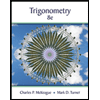
Consider the following time series data:

Using the naïve method (most recent value) as the forecast for the next week, compute the following measures of forecast accuracy:
- a.
Mean absolute error - b. Mean squared error
- c. Mean absolute percentage error
- d. What is the forecast for week 7?
(a)
Find the value of mean absolute error.
Answer to Problem 1P
The mean absolute error is 4.4.
Explanation of Solution
| Week | Time Series Value | Forecast | Forecast Error | Absolute Value of Forecast Error |
| 1 | 18 | |||
| 2 | 13 | 18 | −5 | 5 |
| 3 | 16 | 13 | 3 | 3 |
| 4 | 11 | 16 | −5 | 5 |
| 5 | 17 | 11 | 6 | 6 |
| 6 | 14 | 17 | −3 | 3 |
| Total | 22 |
Thus, the mean absolute error is 4.4.
(b)
Obtain the mean squared error.
Answer to Problem 1P
The mean squared error is 20.8.
Explanation of Solution
The mean squared error is obtained as given below:
| Absolute Value of Forecast Error | Squared Forecast Error |
| 5 | 25 |
| 3 | 9 |
| 5 | 25 |
| 6 | 36 |
| 3 | 9 |
| 22 | 104 |
Thus, the mean squared error is 20.8.
(c)
Find the mean absolute percentage error.
Answer to Problem 1P
The mean absolute percentage error is 31.88.
Explanation of Solution
The mean absolute percentage error is obtained is given below:
| Week | Time Series Value | Forecast | Forecast Error | Percentage Error | Absolute percentage Error |
| 1 | 18 | ||||
| 2 | 13 | 18 | −5 | −38.46 | 38.46 |
| 3 | 16 | 13 | 3 | 18.75 | 18.75 |
| 4 | 11 | 16 | −5 | −45.45 | 45.45 |
| 5 | 17 | 11 | 6 | 35.29 | 35.29 |
| 6 | 14 | 17 | −3 | −21.43 | 21.43 |
| Total | −51.30 | 159.38 |
Thus, the mean absolute percentage error is 31.88.
(d)
Obtain the forecast for week 7.
Answer to Problem 1P
The forecast for week 7 is 14.
Explanation of Solution
The forecast for week 7 is obtained as given below:
Thus, the forecast for week 7 is 14.
Want to see more full solutions like this?
Chapter 8 Solutions
ESSEN OF BUSINESS ANALYTICS (LL) BOM
- (c) Utilize Fubini's Theorem to demonstrate that E(X)= = (1- F(x))dx.arrow_forward(c) Describe the positive and negative parts of a random variable. How is the integral defined for a general random variable using these components?arrow_forward26. (a) Provide an example where X, X but E(X,) does not converge to E(X).arrow_forward
- (b) Demonstrate that if X and Y are independent, then it follows that E(XY) E(X)E(Y);arrow_forward(d) Under what conditions do we say that a random variable X is integrable, specifically when (i) X is a non-negative random variable and (ii) when X is a general random variable?arrow_forward29. State the Borel-Cantelli Lemmas without proof. What is the primary distinction between Lemma 1 and Lemma 2?arrow_forward
 Glencoe Algebra 1, Student Edition, 9780079039897...AlgebraISBN:9780079039897Author:CarterPublisher:McGraw Hill
Glencoe Algebra 1, Student Edition, 9780079039897...AlgebraISBN:9780079039897Author:CarterPublisher:McGraw Hill College Algebra (MindTap Course List)AlgebraISBN:9781305652231Author:R. David Gustafson, Jeff HughesPublisher:Cengage Learning
College Algebra (MindTap Course List)AlgebraISBN:9781305652231Author:R. David Gustafson, Jeff HughesPublisher:Cengage Learning Holt Mcdougal Larson Pre-algebra: Student Edition...AlgebraISBN:9780547587776Author:HOLT MCDOUGALPublisher:HOLT MCDOUGAL
Holt Mcdougal Larson Pre-algebra: Student Edition...AlgebraISBN:9780547587776Author:HOLT MCDOUGALPublisher:HOLT MCDOUGAL Big Ideas Math A Bridge To Success Algebra 1: Stu...AlgebraISBN:9781680331141Author:HOUGHTON MIFFLIN HARCOURTPublisher:Houghton Mifflin Harcourt
Big Ideas Math A Bridge To Success Algebra 1: Stu...AlgebraISBN:9781680331141Author:HOUGHTON MIFFLIN HARCOURTPublisher:Houghton Mifflin Harcourt Functions and Change: A Modeling Approach to Coll...AlgebraISBN:9781337111348Author:Bruce Crauder, Benny Evans, Alan NoellPublisher:Cengage Learning
Functions and Change: A Modeling Approach to Coll...AlgebraISBN:9781337111348Author:Bruce Crauder, Benny Evans, Alan NoellPublisher:Cengage Learning Trigonometry (MindTap Course List)TrigonometryISBN:9781305652224Author:Charles P. McKeague, Mark D. TurnerPublisher:Cengage Learning
Trigonometry (MindTap Course List)TrigonometryISBN:9781305652224Author:Charles P. McKeague, Mark D. TurnerPublisher:Cengage Learning





